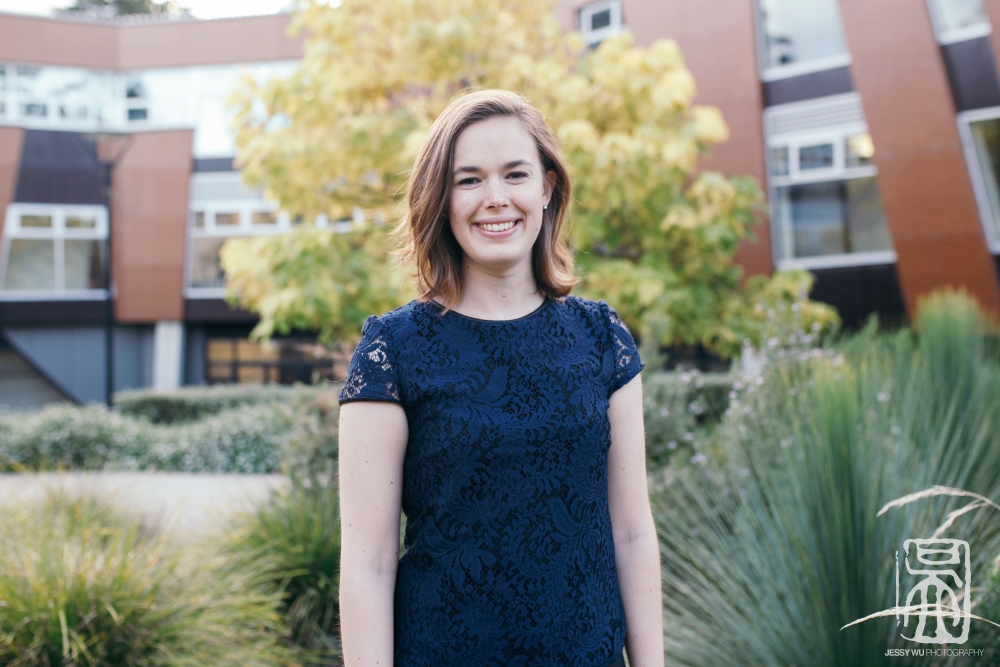Alex Schumann-Gillett - Westpac Future Leaders Scholar

“Without a top-up scholarship I wouldn't have been able to move inter-state, so I wouldn't be at ANU. I would still be in Brisbane and would probably have a lot of support from my parents, whereas now I'm able to be independent.”
In 2015 Alex Schumann-Gillett was awarded one of the inaugural Westpac Future Leaders Scholarships to complete her PhD. Awarded to students who have the potential to make a difference to Australia’s future, these scholarships provide up to $120,000 in funding over a period of two to three years.
Schumann-Gillett is using her scholarship to investigate the interactions between fat molecules and proteins.
“The fats that I'm interested in are the ones that make up the outside of cells -- skin cells, brain cells, these types of things,” she explains. “The fats form the cell membrane—it’s what keeps things inside the cell separate from things outside the cell.”
Schumann-Gillett is interested in how proteins interact with this membrane, research that could have implications for the treatment of some some major diseases.
“One of the proteins that I'm interested in is one that's been implicated in Alzheimer's Disease,” she explains. “We know that in neurodegenerative diseases, and also in diseases like cancer, atherosclerosis and other heart related conditions these fats are chemically altered. They become oxidised, and the oxidation that happens is one of the first early stages of disease. But we don't know what effect that oxidation has on the interactions between proteins and the membrane. So, we know that fats in the membrane become oxidised, and we know that proteins interact with the membrane, but we don't know how.”
Schumann-Gillett is using computational chemistry in order to try and understand those interactions.
“We can use computer simulations to try and understand how those interactions happen. In a computer, we're able to model a particular number, maybe a hundred fat molecules and one protein, and see how they specifically interact in detail, rather than doing experiments that often average over large numbers of molecules.
“Computer simulations can be both explanatory and predictive. For example, if someone has a result in the lab where a drug binds to a protein, and they want to know how it is binding to that protein, we can use computers to simulate that protein and drug. We can use the simulations to try and identify what they see in the lab and explain a little bit more about the specific interactions that could be happening.
“But computer simulations can also be predictive or exploratory, which is more where my research is focused. If my simulations show that, for example, the Alzheimer's protein does bind in a specific way to the fats that are on the surface of the cell, we can say, "Okay, we see this in simulations, but does it happen in experiments?” We form collaborations with experimentalists so that they can, for example, go and target a specific part of the protein and see if interactions we're seeing in the simulation happen in the lab."
With this, Schumann-Gillett hopes to add one piece of the puzzle to our understanding of this devastating disease. But the Westpac Scholarship has been important well beyond her research, and has had major impacts on her professional development.
“I also think that the scholarship has been invaluable for two of its additional aspects. One is the compulsory leadership development course that's run at the start of the scholarship. It was a great way to start off my PhD. It taught us tools about everything from unconscious bias, to how to walk into a room and have presence, to formulating ideas around a pitch, to what leadership style we prefer to adopt.”
“There's another aspect, which is the international experience. As part of my international experience I'll be attending two conferences. The first conference is in Edinburgh, the second in Munich.”
Schumann-Gillett is hoping to be able to use the skills she’s developing to focus on one area in particular – increasing the number of women in science.
“Encouraging and supporting more women in science and related disciplines is important to me because historically, we’re losing talent. At the moment, if you look at figures of who actually stays on to form a career in research, in terms of gender, you see that the majority are men. Women tend to leave the field, for a variety of reasons. I think that it just makes sense to try and hold on to that talent, and if we've got 50/50 men/women being trained throughout the lower stages, we should also be seeing that in the higher stages. We’re doing everyone a disfavour if we don't work to keep women in science.”
It is with the Westpac Future Leaders Scholarship that Schumann-Gillett has been able to achieve all of this.
